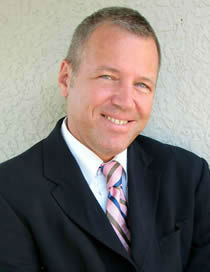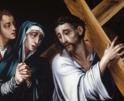
Spirituality
It has been a common practice to appeal to the history of the Church's teaching on usury, slavery, and religious freedom and to claim that the magisterium of the Church has contradicted itself in these matters over time.

Pakaluk
Here's something that happens in the development of science all the time. A general law is set down and regarded as universal, without exception. But then it is discovered that what used to be thought of as the only case turns out to be a special case of something more general. And what was regarded as a general law is now seen to hold without exception only for the special case, not for the general case.
Here's a good example. It used to be thought in geometry that the angles of a triangle must sum to 180 degrees. This was regarded as a self-evident, absolutely universal law, without any possible exception. Yet mathematicians came to realize that what was traditionally called "geometry" was actually just a special case, the geometry of a flat surface. There are "non-Euclidean" geometries of concave and convex surfaces, too. In that broader class, the law does not hold: the angles of a triangle on a globe, for example, sum to greater than 180 degrees. Other sciences have undergone comparable developments.
In the face of such developments, it would be ludicrous and self-defeating for scientists to say things like "geometry over time contradicts itself" or "what used to be absolutely true in geometry is now false." What serious person could have confidence in a science that contained contradictions?
And yet, sadly, this is how many have spoken about the Church. It has been a common practice to appeal to the history of the Church's teaching on usury, slavery, and religious freedom and to claim that the magisterium of the Church has contradicted itself in these matters over time. But what if these also involve a realization over time that what was thought to be the only case is only a special case?
Usury provides perhaps the clearest example, and it's the stock example for the claim that the Church can and should reverse itself because of social pressures: "The Church used to teach strenuously that lending at interest is intrinsically wrong," people say, "But now, in response to pressures from the economy, the Church actually encourages people to do the contrary."
So then, in this view, there is no such thing as the intrinsically wrong sin of usury today. The Church has reversed itself on this matter, right?
Well, not so -- according to the Catechism, which likens usury to murder (n. 2269).
Nor would Pope Francis agree that that teaching has been abandoned. In his address to the "Anti-Usury Foundations" in February 2018, the Holy Father teaches, "Usury humiliates and kills. Usury is an ancient and unfortunately still concealed evil that, like a snake, strangles its victims. It must be prevented, by removing people from the pathology of debts accrued to get by or to save their business." He adds, "Usury is a serious sin: it kills life, tramples on the dignity of people, is a vehicle for corruption and hampers the common good. It also weakens the social and economic foundations of a country."
So usury would not be a good example, after all, for change in Church teaching. What's going on here? Perhaps, again: what used to be regarded as the general case, has come to be seen as a special case.
Take as the general case, "lending money at interest." Now, consider two special cases, which differ in meaning, depending on the condition of the borrower. In the one case, the borrower plans to use the money for mere consumption, either because he has suffered some kind of misfortune, or he has habits of overspending and plans to buy luxuries. Usually, such loans are not secured. In the other case, the borrower plans to invest or otherwise capitalize the loan (even in himself, as in a student loan). Such loans are typically secured.
In an agrarian, non-growth society, where investment opportunities are generally not available, money is almost solely loaned in the first sort of case. It's understandable then that, in such societies, people would simply identify lending with this sort of lending. If they have a certain traditional view of money, too, as a mere "instrument of exchange" (as Aristotle taught), not as "a storehouse of value," they'd be more disposed to make that identification.
Yet this first case is the one condemned traditionally as usury. Aquinas argued that in such a case the lender, disreputably and unjustly, makes a profit off of the weakness or vice of the borrower. (Compounded interest, and exorbitant interest, will amplify the injustice.) But he ought not lend money at all to the profligate. And, ideally, he would simply give money away to the truly unfortunate, or at least lend without interest.
Even in traditional agrarian societies, loans of money which were to be invested immediately would be conceptualized differently. As Aquinas says in his discussion of usury, it's a different case if someone borrows land rather than money. In that case, you can rightly ask for both the land (the "principal") and a portion of the proceeds from the use of the land ("interest") in return. Thus, someone who borrowed money with the understanding that he would immediately be buying land with it, would not really be "borrowing money," but buying the land, through the instrumentality of the money.
Usury is indeed a "still concealed evil ... like a snake." Rejecting a superficial view about how "the Church changed its teaching" may be a first step towards revealing this evil.
- Michael Pakaluk, an Aristotle scholar and Ordinarius of the Pontifical Academy of St. Thomas Aquinas, is a professor in the Busch School of Business at the Catholic University of America. He lives in Hyattsville, MD, with his wife Catherine, also a professor at the Busch School, and their eight children. His latest book, on the Gospel of Mark, is "The Memoirs of St Peter." His next book,"Mary's Voice in the Gospel of John," is forthcoming from Regnery Gateway.
Recent articles in the Spirituality section
-
He saw the cloths and believedBishop Robert Barron
-
God's instrument for viewing the crucifixionMichael Pakaluk
-
QuinquagesimaMichael Pakaluk
-
Pro-life Christians: Now is the time to shout from the rooftopsBishop Robert Barron
-
Seeking an indulgence as an act of faithMichael Pakaluk


















